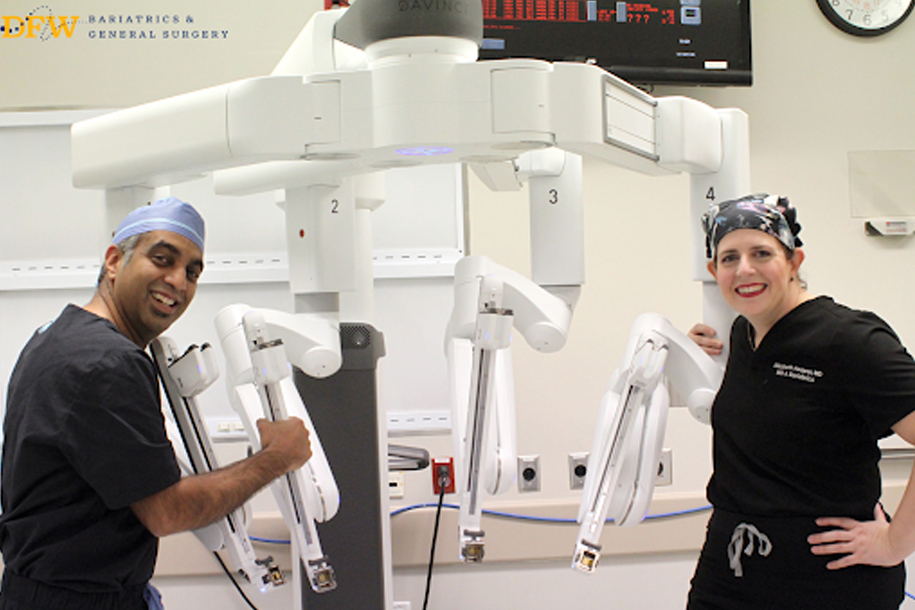
February 20, 2023
Hernias are a common health problem that sometimes requires surgical treatment. Surgical procedures have greatly advanced over the years. While traditional open surgery is the mainstay, in recent years, there has been a massive rise in the popularity of minimally invasive approaches like robotics surgery. As the name suggests, robotics surgery involves the use of a robot to carry out minimally invasive procedures for hernia repair. The best way to determine whether you are a suitable candidate for robotic hernia surgery is to consult experienced hernia surgeons In Fort Worth, TX. In this blog, we will discuss everything you need to know about robotics surgery for hernia repair. Let’s get started.
When to Opt for Hernia Surgery?
Patients are generally recommended to undergo hernia surgery when the hernia is causing discomfort, pain, or other symptoms, or is likely to result in complications if left untreated. Here are the common indications that you should consult a hernia surgeon in Fort Worth:
- Pain or discomfort: If a hernia is causing pain or discomfort, surgery might be the best way to alleviate these symptoms.
- Strangulation: When a hernia becomes “strangulated,” meaning that the blood supply to the protruding tissue is cut off, surgery is necessary to prevent tissue death.
- Obstruction: If the hernia is obstructing the intestine, surgery is generally necessary to remove the obstruction and restore normal organ function.
- Recurrence: Sometimes, a hernia might recur after being repaired. In such a situation, surgeons may prescribe surgery to repair the hernia.
- Size: If a hernia is large or rapidly growing, surgery is recommended to prevent future complications.
What Is Robotics Surgery, and How Does it Work?
Robotic surgery is one of the newest techniques for treating hernias. It employs a laparoscope and involves a procedure that is similar to laparoscopic surgery (featuring small incisions, a tiny camera, inflation of the abdomen, and projection of the internal abdomen onto television screens). However, unlike laparoscopic surgery, in robotic surgery, the surgeon operates the surgical tools while seated at a console in the operating room. Robotic surgery has many advantages over open hernia repair, including less postoperative discomfort, fewer instances of complications such as wound infections, quicker recovery times, and a quicker return to work and regular exercise regimes.
Benefits of Robotics Surgery for Hernia Repair
Robotic surgery for hernia repair has several potential benefits over traditional (open) surgery. Some of these benefits include:
- Enhanced precision: Robotic surgery allows for more precise movements and a higher degree of control for the surgeon, which can be particularly useful for complex procedures such as hernia repair.
- Reduced pain and discomfort: Robotic surgery for hernia repair typically involves less pain and discomfort for the patient compared to open surgery. This is because the incisions are smaller and there is less muscle and tissue damage in the process.
- Faster recovery: Patients who undergo robotic surgery generally experience a faster recovery time and can return to their normal activities more quickly as compared to those who undergo traditional hernia surgery.
- Lower risk of complications: Given the small incisions and precision, robotic surgery has a lower risk of complications such as infection and bleeding compared to open surgery.
Final Word
The use of robotics in hernia repair surgery has led to several benefits for both surgeons and patients. It is, however, important to note that not all patients are candidates for robotic surgery, and the decision to opt for this type of surgery is made on a case-by-case basis. When looking to consult for hernia surgery in Dallas, look no further than DFW Bariatrics and General Surgery. Our team of top hernia surgeons in Fort Worth, TX, leverages state-of-the-art technology to deliver accurate diagnosis and, when necessary, early surgical intervention. To speak with leading hernia surgeons In Fort Worth, TX, call 469-620-0222 or email [email protected]. You can also make an online appointment request, and we will take it from there.
